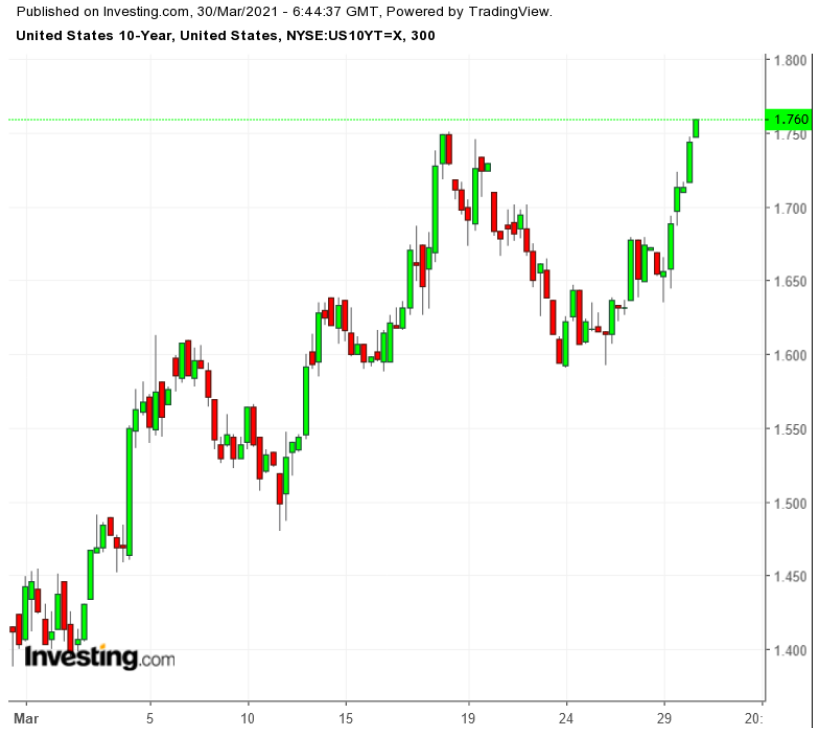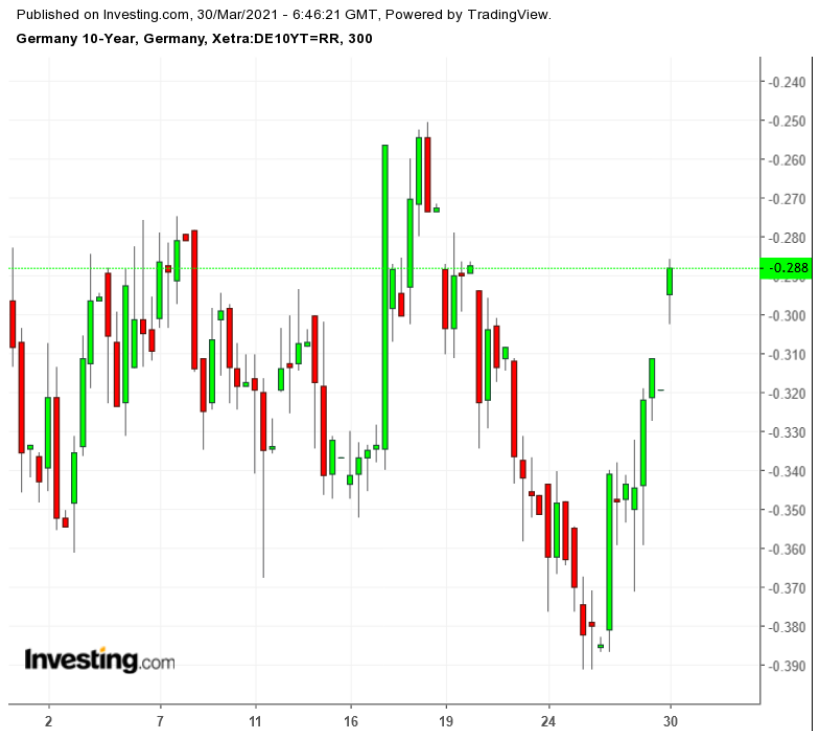Investors are still dithering about what to do with US Treasuries as yields on the benchmark 10-year note bounce around 1.7%, dipping below that mark on Friday and topping it on Monday.

Federal Reserve policymakers went on a communications blitz last week to assure people that inflation is not a concern and that loose money will be the order of the day for the foreseeable future.
But demand for the seven-year note at the auction Thursday was weak, perhaps reflecting investor concern on prices despite Fed assurances. The $62 billion issue had a below-average bid-to-cover ratio of 2.23 despite a yield of 1.3%, some 10 basis points higher than in February and double the yield in late 2020.
The Labor Department’s nonfarm payrolls report for March is due out Friday and higher-than-expected numbers for job gains may spark a selloff in Treasuries despite bond markets closing at noon ahead of Easter.
Consensus forecasts are for about 630,000 new jobs—a big gain from February’s better-than-expected 379,000. A higher number would reinforce expectations of a rapidly improving economy, with the risks that brings for inflation.
The freeing of the Ever Given container ship yesterday unblocked the Suez Canal and alleviated upward pressure on oil prices. But the incident heightened concerns about the vulnerability of supply chains as shortages of everything from containers to silicon chips for automobiles put pressure on prices as demand increases.
On Monday, Christopher Waller felt obliged in his first speech as a newly confirmed member of the Fed board of governors to defend the independence of the central bank and insist the Fed is not keeping interest rates low to make government borrowing cheap amid record deficits. Protesting too much?
The European Union hit a speed bump on its way to sell €750 billion in EU bonds to aid member states when Germany’s Constitutional Court ordered President Frank-Walter Steinmeier not to sign legislation ratifying the EU plan until it reviewed a petition from Eurosceptics to block the sale.
It will be the first bonds issued in the name of the EU and German critics see it as a slippery slope to mutualizing debt, eventually forcing German taxpayers to pay off debts for deadbeat southern Europeans. The European Commission is confident of a quick ruling in the EU’s favor, with ratification by all 27 member states to be completed by July to allow payments to start sometime in the summer.

The yield on Germany’s benchmark 10-year bond rose about 4 basis points on Monday to minus 0.311% after the weekly poll in the Sunday edition of the tabloid Bild showed Chancellor Angela Merkel’s Christian Democrats losing even more support over COVID-19 procurement scandals and a botched vaccine rollout.
Merkel’s legacy is at risk as she had to reverse herself on a stricter lockdown for the Easter weekend because of a political backlash. But she continues to wrangle with state governments about fending off a feared third wave of infections.
The Greens ecology party has risen to 23% in the poll, just two percentage points lower than the Christian Democrats, who have lost 11 percentage points in seven weeks. The poll has led to talk about which of the co-leaders of the Greens will be heading the ticket as possible chancellor in the September national election.
Yields on Italy’s 10-year bonds are pitching and yawing as well, as the country also suffers from slow vaccine deployment and a surge in infections. On Monday, the yield ranged from 0.598% to 0.658%, settling at the higher end at 0.639%.
